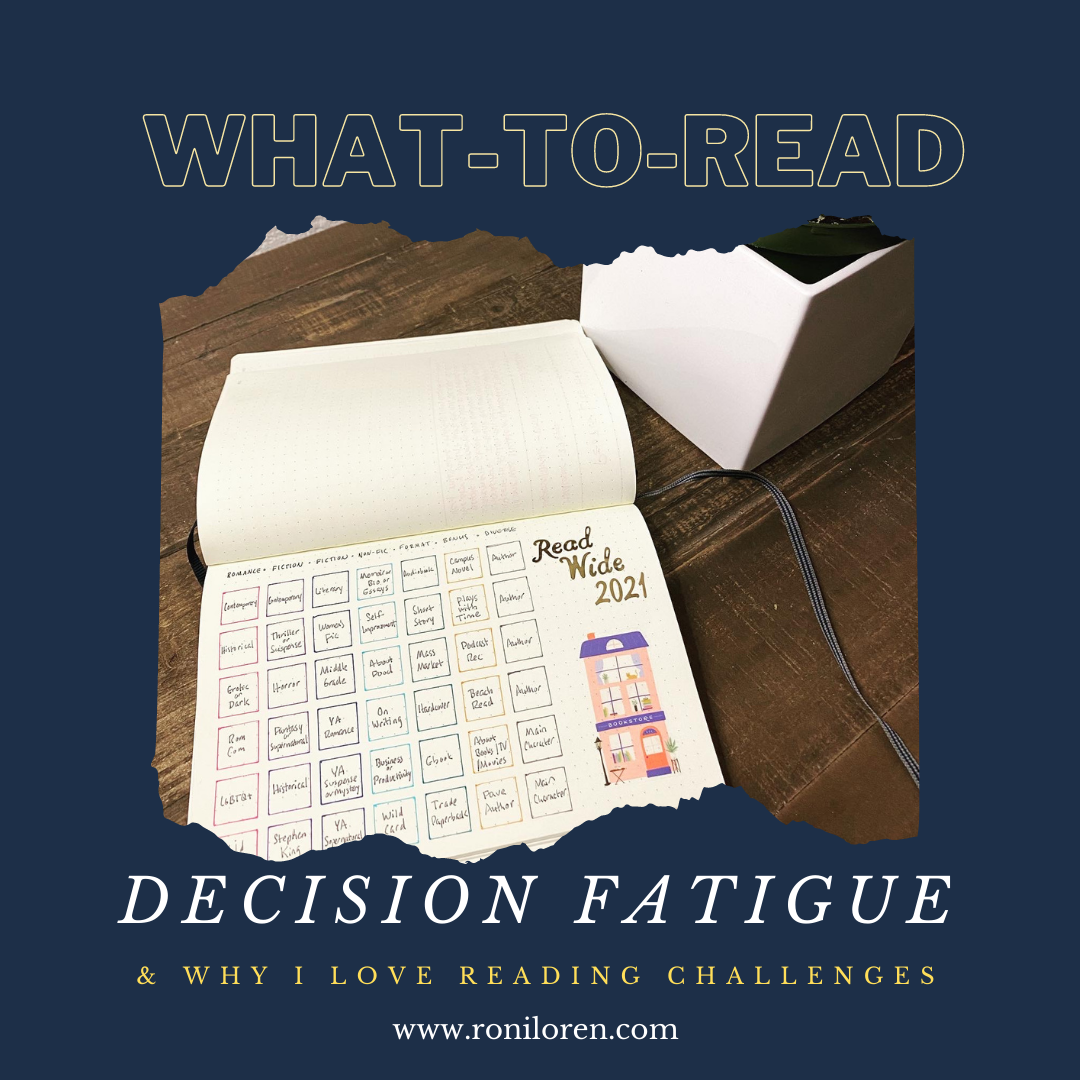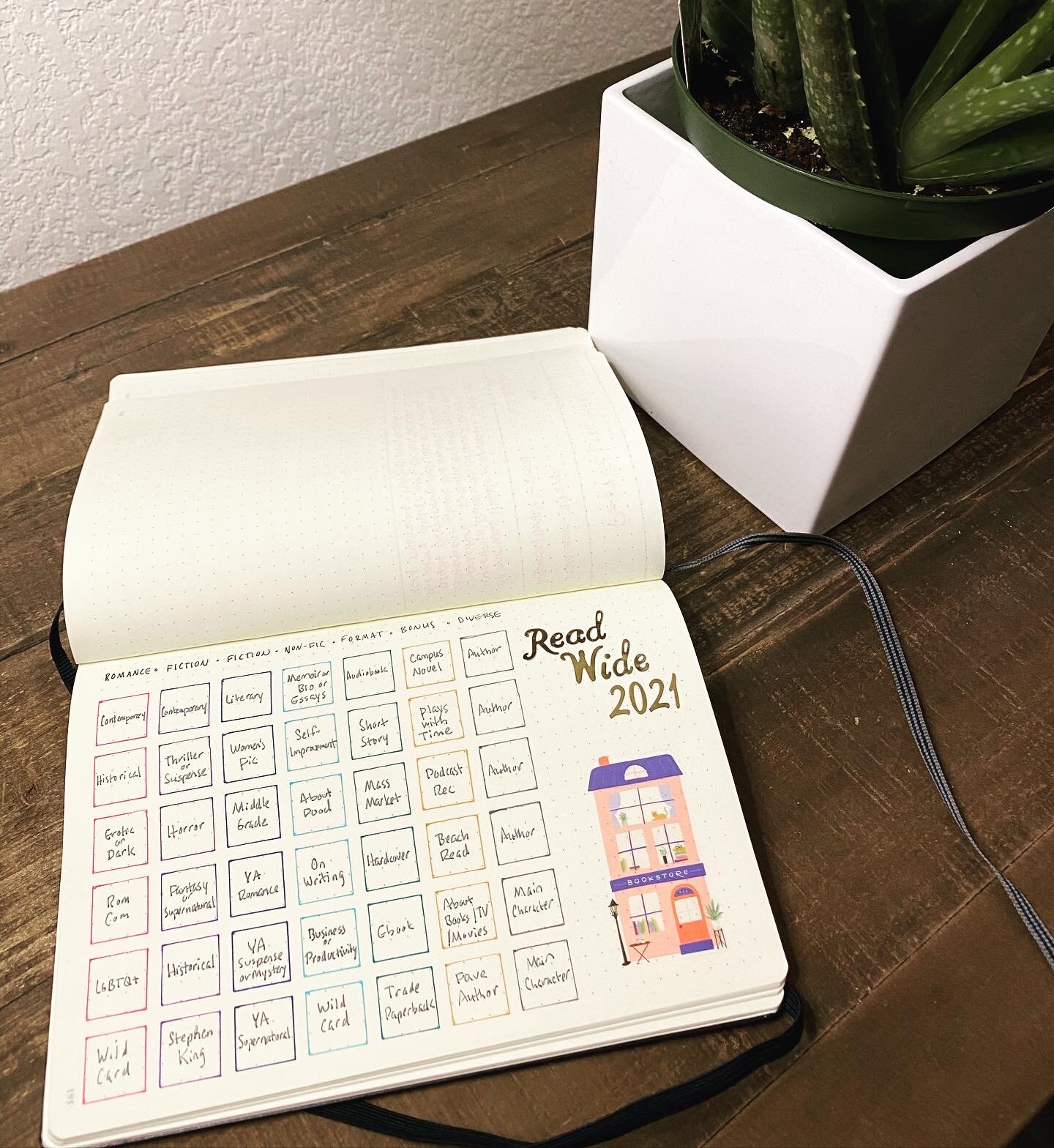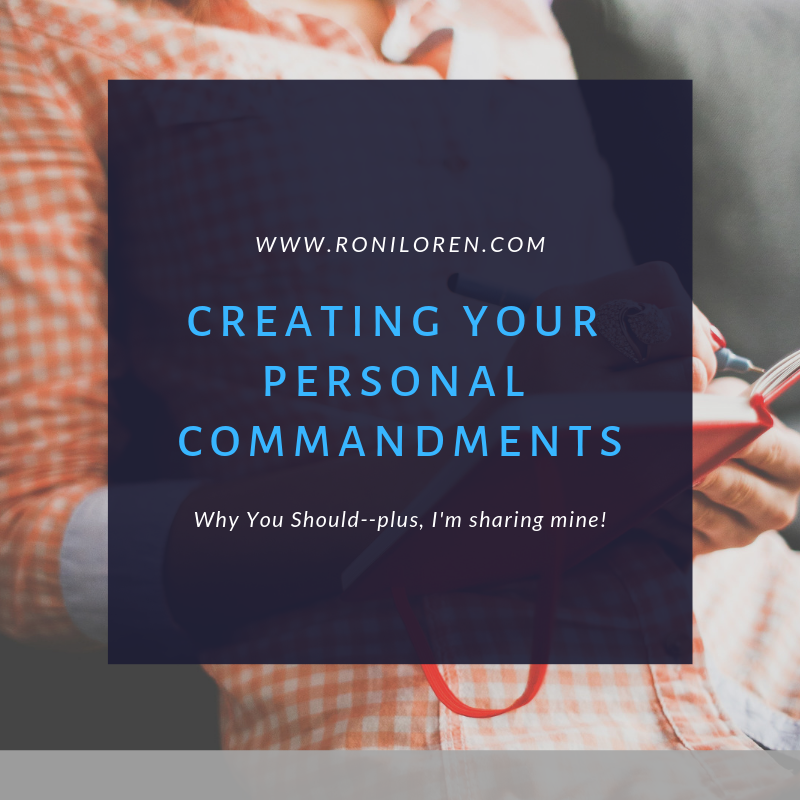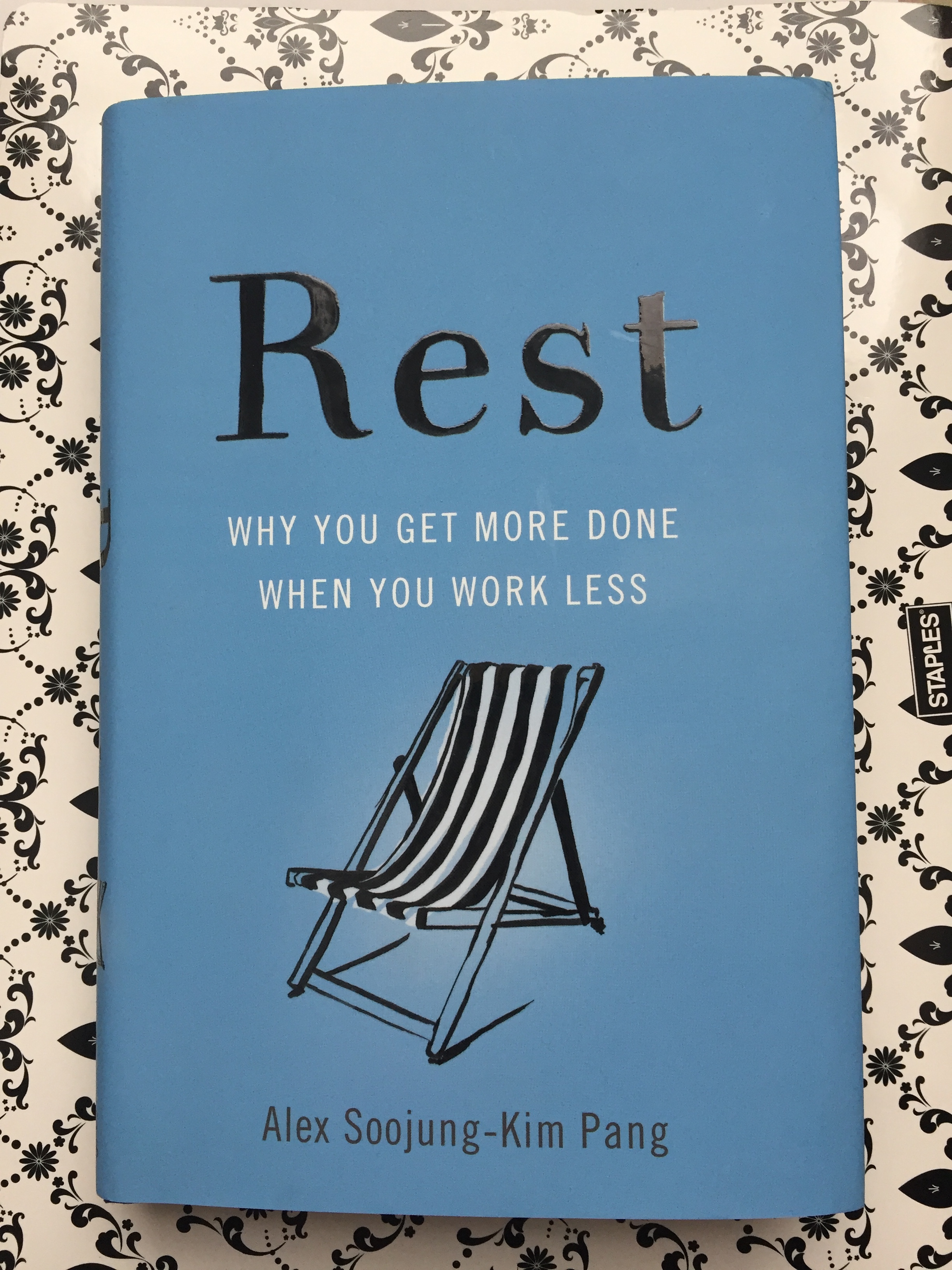My Personal Commandments
1. Be Prepared
No, I’m not a Boy Scout, but this is one I’ve learned time and again. I get anxious when I’m not prepared. I could probably change this to Be Over-Prepared, and it would be more accurate. I function best when I’ve taken my time to prepare for something. I’ve mapped out directions (and printed them in case the GPS freezes up). I’ve made notes to refer to for a presentation in case the power point projector at the venue doesn’t work (something that’s happened before.) I bring snacks if there’s a chance I could get delayed somewhere. I am not a spontaneous, on-the-fly person. That is a personal truth I’ve learned and accepted.
2. Take time to think
This is one that has been a huge revelation in my writing life over the past year or two (one I discovered taking Becca Syme’s classes). I took the Strengthsfinder test, and one of my top 5 strengths is called Intellection. It means I like to think A LOT, and I need to have time to think. This is true in all aspects of my life, but is particularly important in my writing because when I rush the thinking (by charging ahead and trying to hit a word count), I end up hitting a block or going in the wrong direction. Thinking time needs to count as work time for me. If I hit a point in the story where I’m not sure what happens next or something feels off, I need to give myself time and space to think on it without feeling guilty for not getting words on the page. I used this method writing the last book and hit no writer’s block for the first time in at least ten books. A revelation!
3. Input Input Input
This is another discovery from the Strengthsfinder test. My number 2 strength is called Input, which means I need to take in a TON of information in order to be happy and creative. So if I get too busy and stop reading, watching interesting TV shows, reading articles, and learning things, I get stuck creatively. The tank is empty, and I get stressed and overwhelmed. So this commandment is to remind me that taking in all that information is a vital part of the creative process for me. It does not mean I’m wasting time or slacking.
4. Achievement is the reward
In the past, I’ve never been able to figure out why I wasn’t motivated by a reward structure. I’d hear writers say “If I write this many words this week, I get to go shopping at X place or I’ll treat myself to a nice dinner.” That doesn’t work for me at all. It doesn’t motivate me. However, I’m motivated by writing my word count on a wall calendar. What the hell is that about? Well, I’ve figured out that the achievement is the reward for me. I didn’t get straight As as a kid because my parents gave me money for a good report card. I got the As because I wanted the As. That was the reward. Knowing this about myself helps me structure my goal-setting in more effective ways. For instance, I’m using Sarra Cannon’s kanban board method for 90-day planning, and I’m super motivated by moving a sticky note from the To Do section to the Done section. That’s the reward for me. It’s working.
5. If it’s not a hell yes, it’s a no
I didn’t make up this saying, but I’ve been using it as a mental go-to for a couple of years now. At one point, I had it on a sticky note stuck to my monitor because I’d found myself saying yes to too many things. And saying yes to the wrong things means saying no to the things I actually want/need to be doing. It leads to overwhelm and takes away focus from my important goals and life stuff. If I say yes to traveling to every writer or reader conference or book signing, I’m saying no to my writing time and time with my family. So I’ve become super selective about the things I say yes to. I just got back from a signing with Nora Roberts at her bookstore in Maryland. That was a hell yes! But I’ve said no to many things in between because I just can’t do them all and still accomplish what I want to accomplish.
6. Honor the cycles
Over time, we all find patterns and cycles in our lives. For me, this simply means to be aware that there are cycles and to work with that. Monthly cycles, seasonal cycles, business cycles, etc. For instance, I’ve learned the months I get the most work done and the ones that inevitably are difficult, so I plan accordingly now. I almost always get sick some time in December or January. It’s a pattern I need to be aware of because that means I’ll need a week off somewhere in that zone.
7. Take vitamins
This one is self-explanatory, but as someone who has suffered with a Vitamin D deficiency, I need to keep this on my radar always.
8. Movement makes me feel better
I am not a person who loves exercise. This has been a lifelong battle. When I was a kid, I played three sports. I got exercise without knowing it. But since then, it’s been a struggle. However, I like yoga and I feel better when I’m doing it consistently. But man, can I find one hundred other things to do instead. So this commandment is to remind me of the outcome. If I do yoga, I have less muscle aches and feel stronger. I want to feel that way, so I try to use this as motivation to roll out that yoga mat.
9. Trust my instincts
I’ve learned that I’m a pretty intuitive person. When I go against my gut instinct, it usually doesn’t go well. So this is a simple one to remind me to trust myself, my instincts, and my impressions of people.
10. Start small but START
This is my anti-procrastination commandment. I’ve learned that once I start, even the tiniest step, I’m over the biggest hurdle in getting going. (Oh, inertia.) For instance, if I’m dithering and need to be writing, if I just open the doc and put on my writing music, I’m probably going to start writing. If I lay out my yoga mat, I’m going to do yoga. So if I’m dragging my feet with something and know I need to get started, I’ll just tell myself, “Just do this one little thing. That’s all you need to do right now.” And it’s a mental trick. I’m not committing to “writing the next chapter”, I’m just committing to “opening the document and turning on the music.” I used it today to start writing this blog post. I was feeling lazy, so I told myself just to open the doc and type up the headings.
11. Outer order = Inner calm
This is lifted directly from the title of Gretchen Rubin’s next book, but it fits for me. I am more calm if my desk is organized and my house is clean. If I’m feeling scattered, I know that if I organize or clean up some things, it will help calm me.
12. Shopping = avoidance
This isn’t always the case, but if I find myself shopping online, it often means I’m avoiding something. I’m not a clothes shopper, but books, planner supplies, online classes, etc. are my go to shopping drug of choice. So if Amazon packages start showing up every day, it probably means I’m procrastinating on some difficult project or am stuck in my writing. I made this a commandment so that I can catch myself when I’m in that loop.
13. Don’t let yourself get too hungry
When I’m too hungry, I make bad food choices. My self-control goes out the window. I also get hangry and am not pleasant to be around. So this commandment is for my health but also the safety of those around me. ;)
14. You’re usually happy you went
This is one I need to repeat to myself often. If left to my own devices, I’d be a hermit. I like being home. My introverted self is happy not going out and socializing. Also, I get anxious anticipating an event, particularly if it involves travel and being “author me" (which requires a lot of extroverting.) That often makes me not want to go. However, I’ve learned that most of the time, once I go to these things, I have a great time and am happy I went. If I’d let my introverted self have its way, I’d have missed out on some pretty amazing life events and memories. For instance, this past weekend with the book signing at Turn the Page with Nora Roberts, I had to use this commandment. Before the trip, I was stressed out about the weather (southerners don’t know how to drive/deal with snow and single digit temperatures). I was stressed out about travel. I was nervous to meet Nora. However, I kept reminding myself “you’re usually happy you went”. Sure enough, I’m SO thrilled I went, met some great people, and now I have memories that I’ll hold onto for a lifetime.













